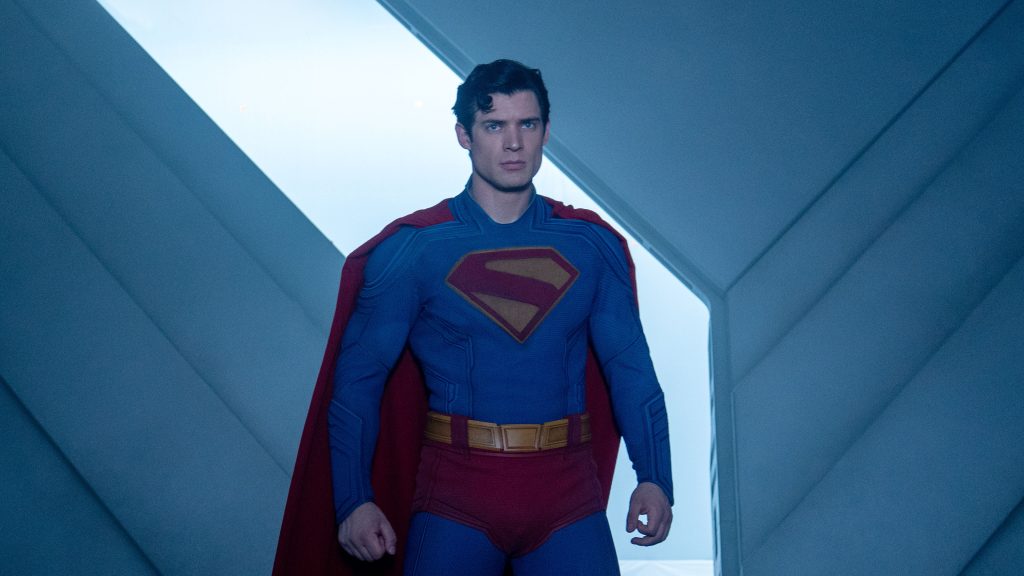I’ll say this for the new Superman: it’s a Superman movie.
If that seems like damning by faint praise, then you haven’t been paying attention to Supes’ big screen outings for the last forty years. Man of Steel and the rest of Henry Cavill’s tenure in Zack Snyder’s somewhat divisive universe bore little resemblance to the character’s comic book outings. Bryan Singer’s Superman Returns was more of an extended pastiche of the Christopher Reeve films, a copy of a copy with hardly anything authentic left. Really, you have to go back to 1983’s Superman III (I deny the existence of Quest for Peace) to see a cinematic Man of Tomorrow who earns the title. That’s a long, long drought for arguably the most iconic superhero of all time.
But now James Gunn has done it. He says his Superman is inspired by Grant Morrison’s classic All-Star Superman—an encouraging sign, though the bar is so low that any acknowledged comic book inspiration is automatically encouraging. Indeed, this film has all the hallmarks of Supes’ comic outings: the colourful Daily Planet cast, a kooky sci-fi menace, and—most importantly—a warm, likeable hero. It’s hard to overstate how much better David Corenswet is at embodying the Man of Steel’s kindly aw-shucks nature than his immediate predecessors, Cavill and Brandon Routh. Superman is not a godlike alien messiah; he’s a Kansas farmboy who doesn’t like bullies. Gunn’s film captures that perfectly, right down to his refusal to even cuss (“What the hey!”). Can you imagine this guy snapping General Zod’s neck? If you can’t, that’s a good thing.

Nicholas Hoult’s Lex Luthor is another important part of why the movie works as well as it does. He has moments where he’s as threatening as Clancy Brown’s famous turn in Superman: The Animated Series, yet others where he’s as pathetic in his obsession with besting Supes as the version in Grant Morrison’s Action Comics run. That Lex literally stepped in to KO an extradimensional menace on the verge of offing Big Blue because “no one kills Superman but me”, to give you an idea. His schemes are also cleverly contemporary without being too in-your-face. I especially like his army of monkeys with keyboards spewing ragebait on Twitter (I swear I’m not kidding). Yet somehow this Lex still manages to have more dignity than his real-life wannabes.
Alright, we’ve established that Superman is a good and faithful adaptation. But does it surpass the high water mark for Big Blue and superhero cinema as a whole, the ‘78 Superman? Not quite. But, then again, maybe it doesn’t want to. Richard Donner’s epoch-making ‘70s film is ridiculously hard to beat. For one, it features impeccable casting: Reeve nailing both a gentle Superman and a self-aware Clark Kent, Margot Kidder embodying the tough-as-nails Golden Age Lois, Gene Hackman hamming it up as a gloriously camp Luthor, and Marlon Brando bringing much-needed gravitas to the previously cardboard Jor-El. Each of these performances was so good it reshaped the comics, as did little details like the crystalloid Fortress of Solitude and the Superman symbol as a Kryptonian coat of arms.
It was also the first big-budget superhero film since 1966’s Batman, legitimizing the genre and paving the way for it to conquer the film industry. Donner brought an epic sensibility to material previously regarded as kids’ fluff and revealed the sheer archetypal power stirring within it. As the tagline put it, the film made us “believe a man can fly”. That sense of supreme confidence in creating something totally new is hard to match without pulling off a similar reinvention of the superhero movie. Gunn doesn’t even try for that; if it ain’t broke, why try to fix it?
I think his goal with Superman was just to make a good Superman film—not the defining Superman film, but something that reminds us of what we’ve been missing for so long. Comics are episodic by their very nature, after all. In that way, Superman betrays the influence of Smallville, which stood as the most comic-accurate 21st-century Superman adaptation until now, despite its notorious ‘No tights, no flights’ rule.
As a TV show, Smallville could get away with the wacky lore, villains of the week, and other comic-y stylings that recent dour cinematic outings have avoided. Even Tom Welling’s earnest take on Clark feels like a template for Corenswet to pull that off believably in a contemporary setting. In fact, Gunn has acknowledged that he’s a fan of the show, which makes sense. He knows he can’t touch the ‘78 film, so why not shoot for something more low-key instead? There’s something deeply refreshing about a story that feels like it could be just one among many other Superman tales. Here’s hoping we get many more like that.
